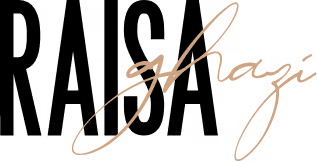Join the Waitlist!
Step 1 of 2: What stage are you at in your online business?
I'm just starting out and don't yet have an idea, audience, or list
I have an audience but I'm not generating any revenue
My business has money coming in but I want recurring revenue
I have a membership and I want to make it more profitable
Tell Us How to Get In Touch
Step 2 of 2: Complete the form below.
Your privacy is important to us and we will not spam you. By signing up you'll also receive access to business tips and exclusive offers. View our Privacy Policy.

Internationally Requested Speaker
Internationally Requested Speaker
Learning Financial Independence with The First Female Finance Minister of the Netherlands

While on my mission to teach financial independence to women across the globe, I had the privilege to chat with a woman who broke the glass ceiling in the Netherlands. Yes, you guessed it! Mrs. Sigrid Kaag, the first-ever female Finance Minister of the Netherlands. The tone was light, the chat was spirited, and boy, did we dive deep into finance, women, and the delicious blend of both.
1. The Financial Literacy Gender Gap
Often, when we discuss the gender gap, it's about wages or representation in sectors. Rarely do we touch upon the 'financial literacy' gap among women. Mrs. Kaag paints a vivid picture: in many countries, the right to have a bank account, borrow money, or even own land is still a distant dream for many women. In the Netherlands, they're actively pushing the narrative towards financial independence and literacy for women. Lesson one? Understand your finances; knowledge is, indeed, power. For many, having a bank account or the capacity to take out a loan might seem trivial. But as Mrs. Kaag pointed out, these basics can be out of reach for countless women, hampering their growth and independence.
Advice: Begin by familiarizing yourself with basic financial rights and services available in your country. Knowledge of your rights is the first step towards claiming them.
2. Financial Literacy Initiatives
The Netherlands, under the guidance of Mrs. Kaag, is focusing on 'financial literacy'. Through collaborations with banks and associations, they’re rolling out outreach programs and initiatives. The mission? Equip every woman with the tools to make informed financial decisions, from pensions to borrowing. Mrs. Kaag mentions collaborative efforts in the Netherlands, where multiple entities come together to boost financial literacy. Lacking financial literacy has a cascading effect. Not only does it limit economic autonomy, but it also can make women vulnerable to financial frauds, unsustainable debts, and economic dependence.
Advice: Look for local workshops, women’s groups, or community classes focused on financial education. There's strength in numbers, and collective learning can be both enlightening and reassuring. Dedicate time to educate yourself on finance. From understanding savings accounts to the intricacies of investments, empower yourself to make informed decisions.
3. Personal Money Matters
Delving a little into Mrs. Kaag's personal relationship with money was enlightening. She has always been independent with a steady income and a bank account, marking her place in the world as an 'actor, not a victim' of finance. She emphasizes that it's paramount for all generations to navigate the ever-evolving financial landscape, and at the heart of it lies the age-old adage: "knowledge is power".
4. Evolving Conversations with Money
In a nostalgic note, Mrs. Kaag shared how the conversation about money has changed from her parents' generation, rooted in frugality, to her daughters, who are growing up in a digital age where financial decisions are more intricate and diverse. The key takeaway? Understand the changing dynamics of money and adapt accordingly, all while keeping a healthy balance of risk and responsibility. The financial frugality of past generations, as Mrs. Kaag notes, was dictated by societal norms and the post-war economy. Today’s world is different, with digital transactions and easy credit systems.
Advice: While embracing modern financial tools, retain the essence of past financial wisdom. Balancing caution with courage in financial decisions can lead to a secure yet progressive financial life.
5. Learning from Global Experiences
Having lived in countries across various financial landscapes, Mrs. Kaag's insights span from the credit-heavy nature of the US to grassroots initiatives in developing nations. The lesson here is to adapt best practices while also being wary of pitfalls. Grassroot and community outreach initiatives, especially in developing countries, serve as great models for promoting financial literacy. At its core, Mrs. Kaag's message revolves around the age-old adage: Knowledge is power. By arming oneself with financial knowledge, women can rewrite their narratives from dependency to autonomy.
Advice: Be proactive. Don't wait for financial challenges to arise. Equip yourself with knowledge now, so you're prepared to navigate any financial situation confidently.
6. The Dutch Blueprint for Financial Freedom
Here's a golden nugget - the Netherlands has crafted '10 building blocks' to pave the path for financial independence. Not just that, they have Queen Maxima, who globally champions the cause of financial inclusion. The country's approach emphasizes collaboration across sectors to ensure citizens' rights are central and protected in financial dealings.
In wrapping up our delightful conversation, Mrs. Kaag's insights into bridging the financial literacy gap amongst women were not just enlightening but empowering. As I wave you goodbye from this enlightening session, remember: the path to financial freedom starts with understanding and taking charge.
